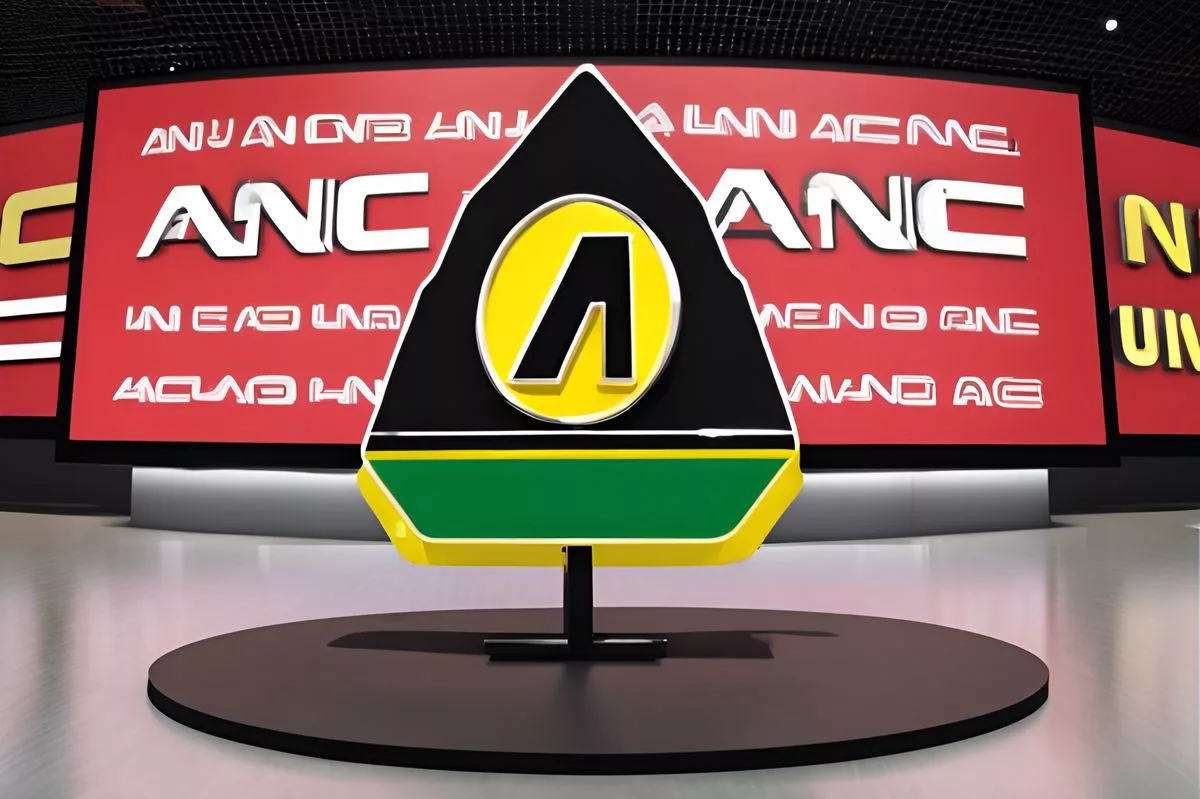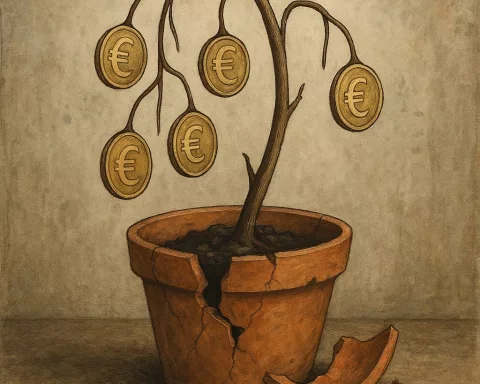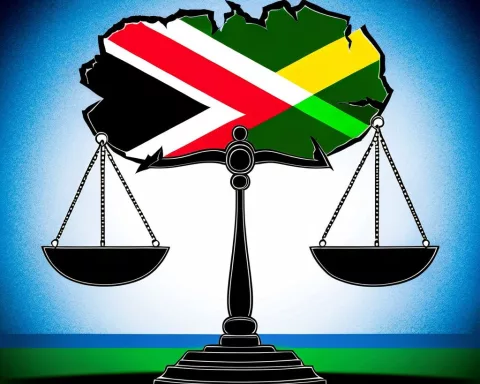The African National Congress (ANC) is holding a virtual disciplinary proceeding against ex-president Jacob Zuma for breaching party rules, marking a significant juncture in South Africa’s political scene. The hearing was moved online due to safety concerns, and Zuma’s endorsement of a rival party has created tension within the ANC. The outcome of the hearing will have broader implications for the future trajectory of the ANC and the evolution of South Africa’s political landscape.
What is the landmark virtual disciplinary proceeding involving Jacob Zuma?
The African National Congress (ANC) is holding a disciplinary proceeding against its ex-president, Jacob Zuma, for breaching party rules. What makes this hearing exceptional is its virtual venue due to safety concerns. This proceeding represents a significant juncture in South Africa’s political scene and symbolizes the ongoing transformation of its political landscape.
ANC: Taking Center Stage of South Africa’s Political Scene
On the forefront of South Africa’s political sphere, the African National Congress (ANC) looms large, shaping the national discourse with its vast sway. Amid this potent role, the ANC is embroiled in a disciplinary proceeding that has garnered countrywide attention – the hearing of its ex-president, Jacob Zuma.
This tribunal, scheduled for Wednesday, 17 July, promises to be exceptional for several reasons. Paramount among these is its virtual venue, a fact confirmed by the ANC’s acting spokesperson, Zuko Godlimpi. Originally planned for 7 May at the Luthuli House, the ANC’s central office in Johannesburg, the hearing was deferred due to apprehensions over safety. The new date was fixed following the National and Provincial Elections of 29 May.
The safety fears were not without reason. Members of the MK Party had vowed to escort their leader to Luthuli House in a display of unity and defense. Nonetheless, the online format of the tribunal nullifies these concerns, offering a secure platform to conduct the proceedings.
The Charges against Zuma and Internal Tensions
Jacob Zuma’s hearing stems from allegations leveled against him for breaching Rule 25 of the ANC constitution, incorporating a charge of cooperation with another political party. This move follows Zuma’s public expression of support for the MK Party in December 2023, prompting ANC Secretary-General Fikile Mbalula to declare that Zuma had effectively severed his association with the party.
In spite of his suspension in January and his endorsement of the rival MK Party, which he now helms, Zuma ostensibly remains an ANC member. Nonetheless, his backing for the MK Party, noticeable in his choice not to advocate for or cast his vote for the ANC, has stirred friction within the party’s structure.
While these tensions simmer within the ANC, the MK Party has been making strides. In the groundbreaking elections of 29 May, the MK Party garnered over two million votes, making it the third most significant political party in South Africa. This outcome is indicative of its increasing sway, earning 58 seats in the National Assembly and representation in numerous provincial legislative bodies.
The Hearing’s Execution and its Broader Implications
As the tribunal’s day edges closer, many are left wondering about its execution. Godlimpi shed light on this, stating that the ANC National Disciplinary Committee (NDC), an independent committee of the National Executive Committee (NEC), would oversee the hearing in adherence to the ANC Constitution and Disciplinary Rules and Regulations. The decision to have witnesses present at the hearing is one that only the NDC and the person under scrutiny can determine.
This disciplinary proceeding represents a substantial juncture in South Africa’s political scene. Positioned at the crossroads of party allegiance and personal political aspirations, it will undeniably cast a profound influence on the future trajectory of the ANC and the broader political context.
However, it’s essential to bear in mind that this isn’t merely about a disciplinary tribunal; it also symbolizes the ongoing transformation of South Africa’s political landscape, which is perpetually adapting and evolving in accordance with changing times. It signifies the functioning of democracy, its ability to accommodate diverse perspectives within a broad framework of legal and ethical standards.
Thus, Jacob Zuma’s virtual hearing is far from being just a disciplinary procedure; it’s a pivotal event encapsulating the dynamic interplay of individual decisions, party politics, and the wider backdrop of the South African democracy.
Why was the hearing moved online?
The hearing was moved online due to safety concerns. There were fears of violence as members of the MK Party had vowed to escort their leader to Luthuli House, the original venue of the hearing.
What charges are being leveled against Jacob Zuma?
Jacob Zuma is being charged with breaching Rule 25 of the ANC constitution, which includes a charge of cooperation with another political party, in this case, the MK Party.
What tensions has Zuma’s endorsement of a rival party caused within the ANC?
Zuma’s endorsement of the MK Party and his choice not to advocate for or cast his vote for the ANC has caused tension within the party’s structure.
What is the MK Party?
The MK Party is a political party in South Africa that has been making strides, earning over two million votes in the 29 May elections, making it the third most significant political party in South Africa.
How will the hearing be executed?
The ANC National Disciplinary Committee (NDC), an independent committee of the National Executive Committee (NEC), will oversee the hearing in adherence to the ANC Constitution and Disciplinary Rules and Regulations. Witnesses may be present if deemed necessary by the NDC and the person under scrutiny.
What are the broader implications of the hearing?
The hearing represents a substantial juncture in South Africa’s political scene and will undeniably cast a profound influence on the future trajectory of the ANC and the broader political context. It also symbolizes the ongoing transformation of South Africa’s political landscape and its ability to accommodate diverse perspectives within a broad framework of legal and ethical standards.












